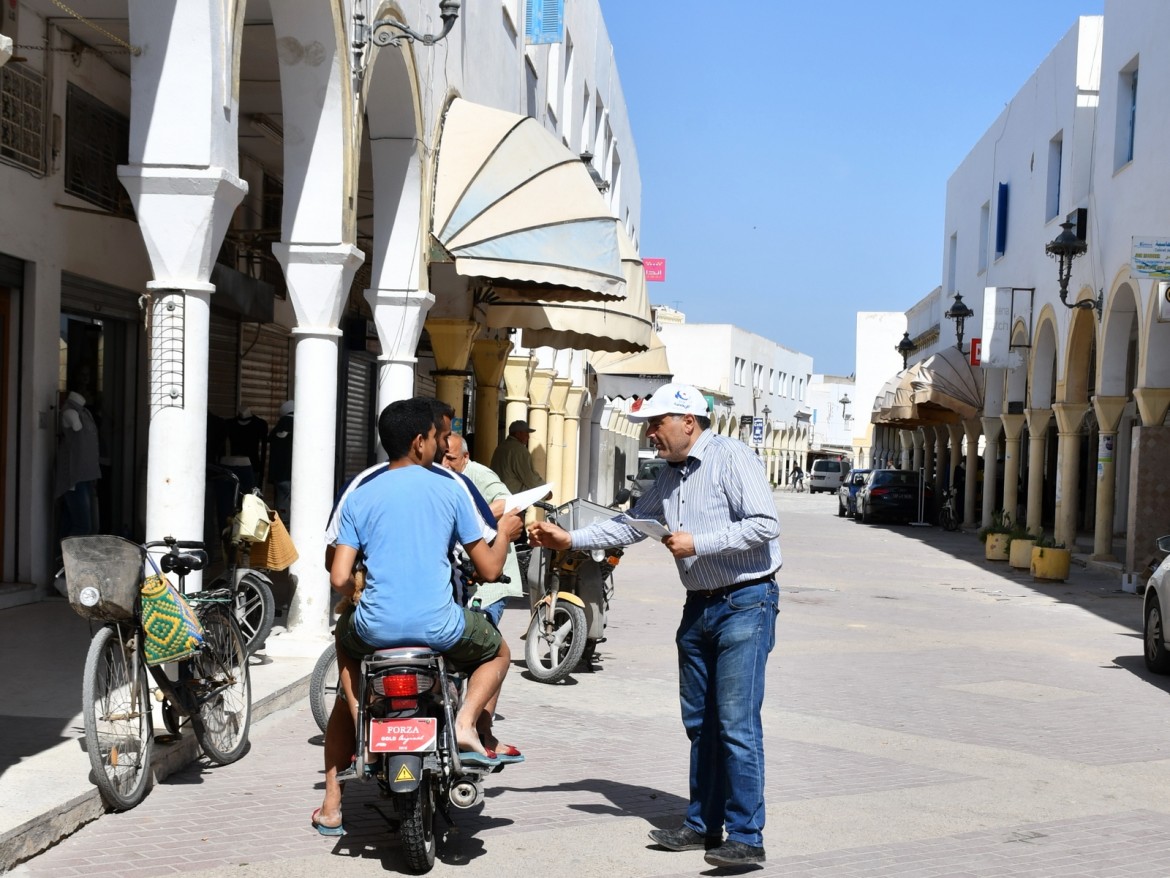Interview
In Tunisia, the favored Islamist party positions itself as ‘modern’
‘Tunisia belongs to all the forces which accept the rules of democracy, and which, most importantly, agree to coexist with the others and to help develop a modern, peaceful, tolerant and progressive state.’

As Tunisians go to the polls Sunday, Habib Kazdaghli, dean of the Faculty of Letters, Arts and Sciences of the University of Tunis in Manouba, says the future of the new democracy will be the turnout. He called it “the real unknown factor.”
“From that we will see if discontent and the social crisis will prevail,” he told il manifesto.
How is the Tunisian democratic transition proceeding?
It seems tougher and longer than expected, but it is moving ahead. The 2014 elections did not result in a clear majority, although they rebalanced the political landscape that led the Islamists to victory in the Constituent Assembly. Ennahda was beaten in 2014 but remains the country’s second political force: it was useful to involve the Islamist party as well, in terms of democratic participation in the covenant of Carthage and in the next unity government, also in order to avoid the risk of repeating the previous tensions and clashes.
The problems inherited from the Ben Ali regime before 2011, in addition to the Troika period of 2011-2014, were, and still remain, enormous, while convincing results are slow in coming. Tourism is still holding on, and it remains fundamental to our economy. Even though there is no investment, unemployment overall is over 15 percent and youth unemployment is above 30 percent, while inflation is at 7 percent and the agreements with the IMF have caused a rapid rise in prices and in discontent among the population, which is the main engine and support for the democratic project of the Revolution.
So Ennahda remains the only party to run in all precincts, as it remains strong and its influence is spreading through mosques?
Yes, Ennahda is present in all 350 precincts, like Nidaa Tounes, although the party of the president appears weaker due to the defection of many of its leading figures. The third political force, the Popular Front, is running in only 140 precincts. The real challenge is to see which will be the top political force after the elections on May 6, and especially which party those on the independent lists [around 800 candidates] running for elective office in the municipal councils will give their support to.
Has Ennahda truly come out of the period of cronyism and authoritarianism to present itself as a democratic Islamist party?
This is what it wants everyone to believe after its last congress. For this reason, it is trying to show itself to be “modern” with its lists, including a Jewish person and unveiled women in Western clothes as candidates, and not declaring itself hostile toward homosexuals. But this ostentatious change shows that there is a need to reassure the public, which does not trust them much.
It must be said, however, that they did change their strategy: after the Revolution, they wanted to “Islamize the Tunisians,” but now they claim to be a part of the Tunisian people. As long as they say they are a part of the Tunisian democracy, its institutions and its people, and they deny any “sympathy” toward radical and Salafi Islam and agree to coexist with all the other political formations, there is no reason to exclude them from democratic elections. Tunisia belongs to all the forces which accept the rules of democracy, and which, most importantly, agree to coexist with the others and to help develop a modern, peaceful, tolerant and progressive state.
To what extent has the Left been able to channel the protests around the country in recent months, and how deeply is it rooted in the territory?
The Tunisian Left is deeply rooted in society, and its members have contributed to the struggle for social justice, for democracy and for a progressive plan for the country. Unfortunately, it does suffer, as it does to some extent everywhere, by fragmentation and divisions. A large part of it has come together under the umbrella of the Popular Front, with a program of opposition to the government’s austerity policies, even though in practice they have not brought major proposals for change. There is another part of the Left [Al Massar], with little representation in Parliament, which, while espousing the ideas of social justice and progress, has shown itself to be more pragmatic in this time of transition. What remains fundamental, in any case, is that the forces of the Left continue to search for a common vision of political struggle, overcoming this historical cycle of ideological division.
Could these elections be useful in preparation for the legislative elections in 2019?
Although most of the political actors are insisting on the local character of these elections, which are about the leadership of the different municipalities, starting May 7 attention will turn toward the legislative and presidential elections of 2019. We will see who will be the real winner from among the two major parties, although the big question concerns the independent candidates and who they will support. If strong numbers of these candidates express animus against the existing parties, how will they react after the results show a conservative party (Ennahda) or a liberal party (Nidaa Tounes) as the winner? Undoubtedly, the results of the elections will be critical for the emergence of new political alliances for next year’s elections, including for the Tunisian Left.
Originally published at https://ilmanifesto.it/se-in-tunisia-gli-islamisti-ostentano-modernita-un-motivo-ce/ on 2018-05-06
